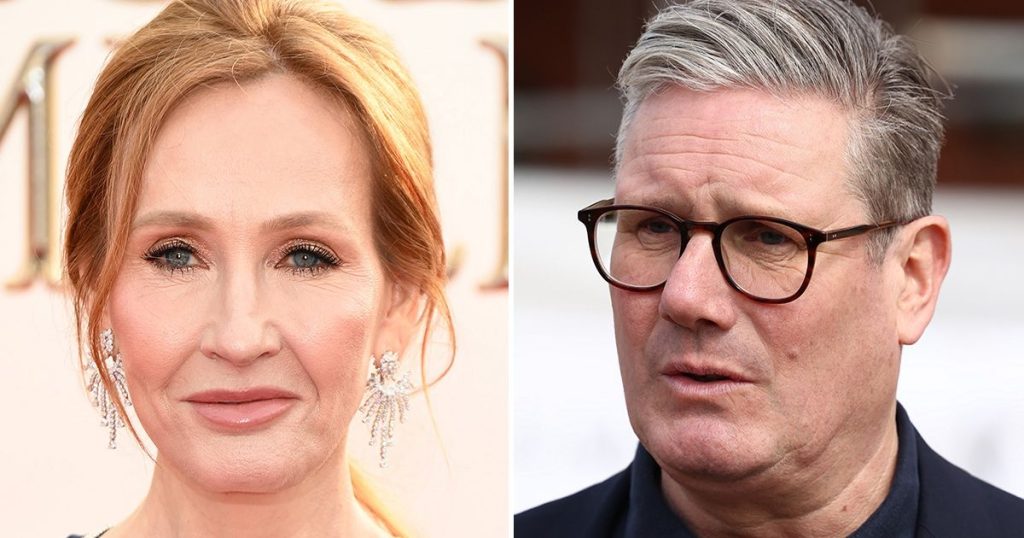JK Rowling has sparked a confrontation with Labour leader Sir Keir Starmer over women’s rights. Rowling criticized Starmer for defending Labour MP Rosie Duffield, who said only women have a cervix. Starmer, during an appearance on Good Morning Britain, acknowledged that having a cervix is a biological matter, contradicting his previous comments. The discussion also touched on how transgender women should be treated in medical and correctional facilities, with Starmer supporting separate accommodations. However, he avoided a direct response when asked if he would apologize to Duffield, citing a desire to avoid a divisive debate.
Rowling further criticized Starmer for pandering to activists who threatened female MPs, accusing him of contributing to a toxic environment. She expressed disappointment in his failure to apologize, suggesting that it would have shown goodwill towards women. Starmer defended his relationship with Duffield, emphasizing a distinction between sex and gender and expressing a desire to discuss issues positively. Their differences in views were evident when Duffield humorously remarked about their supposed telepathic communication, implying a lack of direct engagement between them. Rowling’s vocal stance on women’s rights and transgender issues has previously stirred controversy, especially within the LGBTQ+ community.
In response to Rowling’s comments and her persistent advocacy for women’s rights, Harry Potter stars Daniel Radcliffe and Emma Watson distanced themselves from the author, aligning themselves with the LGBTQ+ community. Rowling expressed that she will not forgive them for their stance against her, highlighting a growing divide among those associated with the Harry Potter franchise. Rowling’s criticism of transgender terminology and her pushback against inclusive language has been met with backlash from transgender individuals and allies who have been fans of her work. The broader implications of this rift within the Harry Potter community are indicative of the complex debates surrounding gender identity and women’s rights.
The ongoing dispute between Rowling, Starmer, and other Harry Potter stars reflects a broader societal conversation around gender, identity, and inclusivity. Rowling’s unyielding stance on defending women’s rights, particularly in relation to transgender issues, has led to conflicts with political figures like Starmer and former collaborators from the Harry Potter series. The clash of views highlights the complexities of navigating gender politics in the public sphere and the challenges of reconciliation and understanding across diverse perspectives. As public figures grapple with these contentious issues, the impact on their relationships and public perceptions underscores the significance of engaging in open dialogue and fostering mutual respect.
Despite the personal and public disagreements between Rowling, Starmer, and other individuals involved in the discussions on women’s rights and transgender issues, the broader implications of these debates extend to societal attitudes and policies. The tension between different perspectives on gender identity, inclusion, and advocacy underscores the importance of finding common ground and respecting diverse viewpoints. As the discourse continues to evolve, it raises critical questions about representation, rights, and social progress, prompting deeper reflection and engagement around these complex and sensitive issues. By navigating these debates with empathy, understanding, and a commitment to dialogue, individuals and communities can work towards a more inclusive and equitable future for all.


